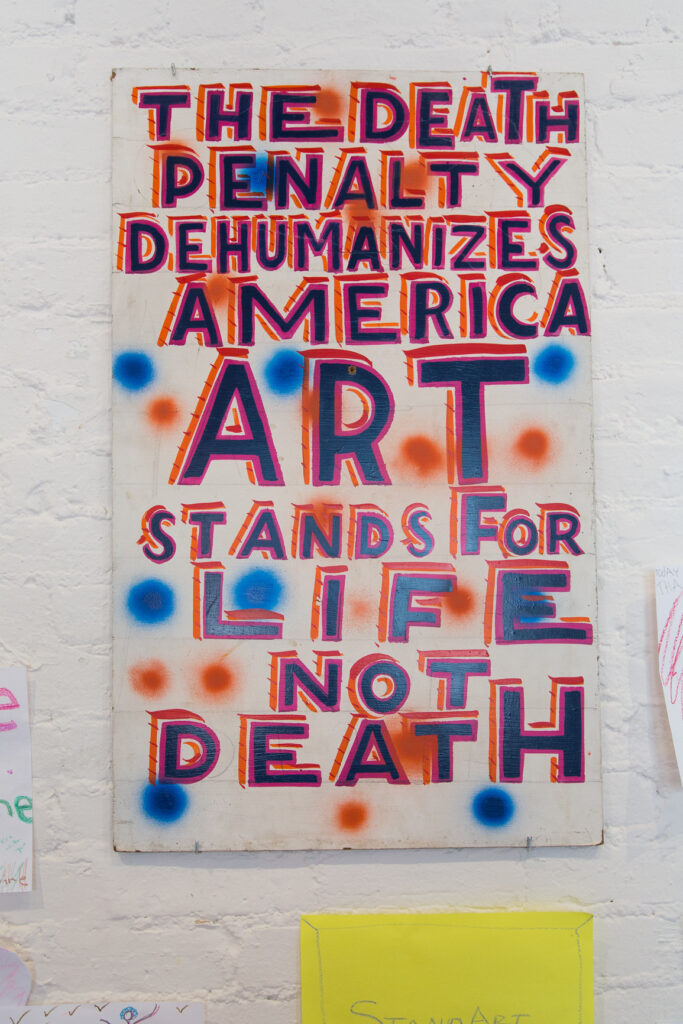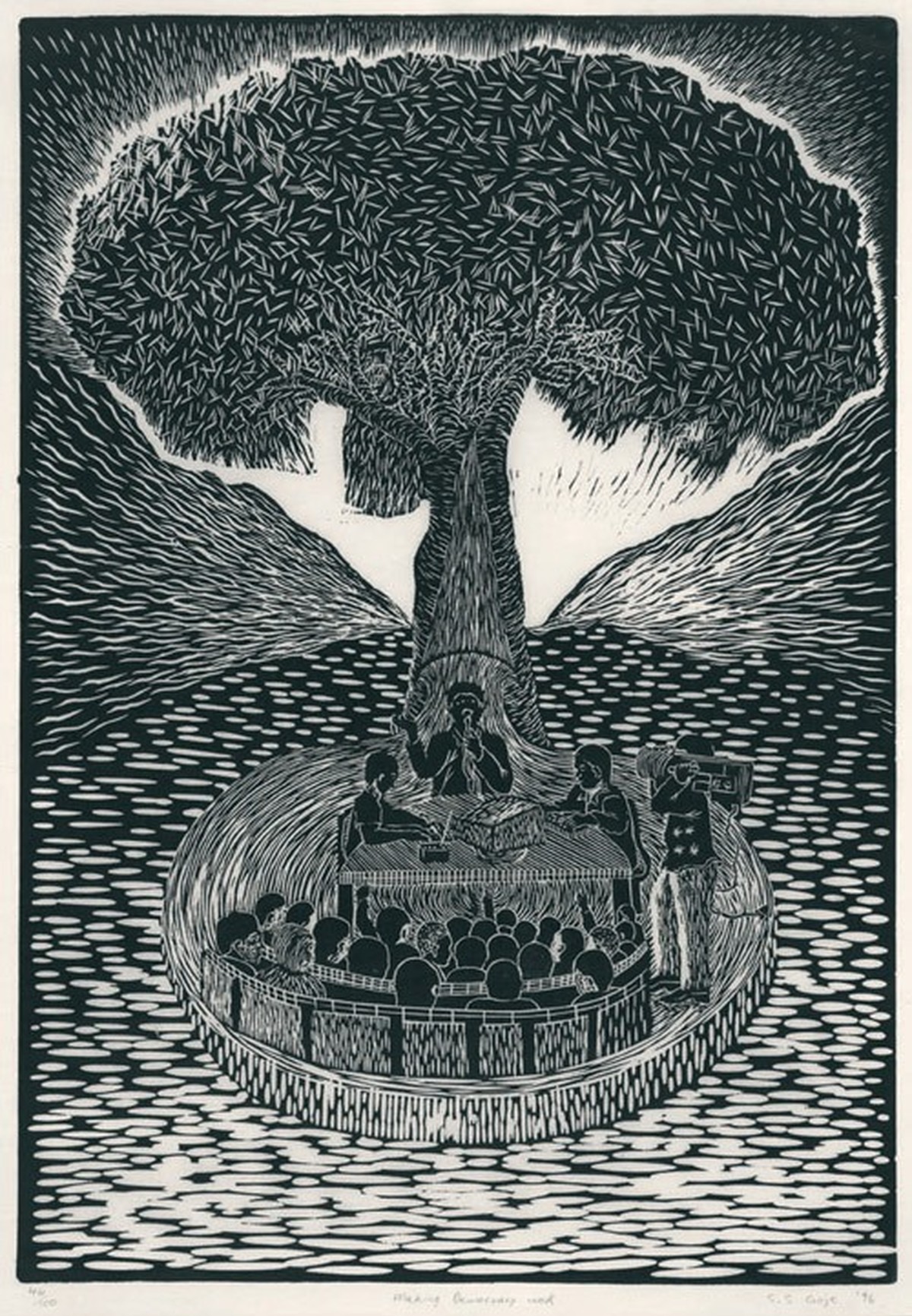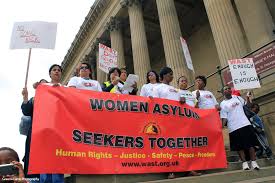
Diary Entry: For Those Who Claim to be Pro-life — for Emmanuel Littlejohn and Many Others
For those who claim to be pro-life
For a justice system with as bad aim as two would be assassins.
More evidence against Donald Trump than against Emanuel Littlejohn
(But, the Lord is with us.)
Now He’s dead — killed by the same state mechanisms Christian Nationalist seek to enhance
And use to save the unborn babies
Just not grown men on death row.
Nope.
No contradictions there.
And, Trump is still endlessly [un]appealing
It’s got me holding my head in my hands
walking around just saying:
Damn to myself
A vehement percussive exhalation accompanied by a mantra of disgust
This diary entry of a mad Black man.
Who does this justice system serve?
Somewhere Malcolm, Abraham, Martin, and John watch, shake their heads
And refuse to weep.
Has anybody here seen my old friends?
Can you tell me where they’ve gone?

(By Heidi Lindemann and Michael Perry)
(image Credit 1: James Victore / MoMA)
(Image Credit 2: Bob and Roberta Smith: Art Amnesty / MoMA)





